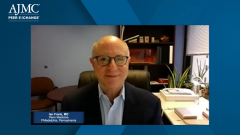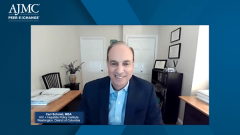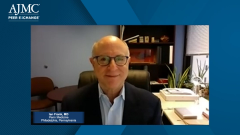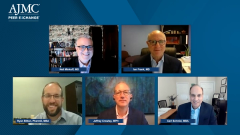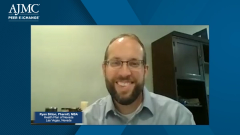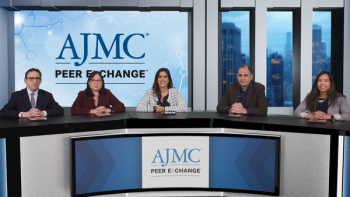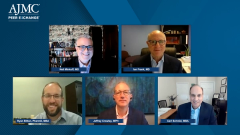
Improving PrEP Use Among Clinicians
Ian Frank, MD and Jeffrey Crowley, MPH provide insight into engaging clinicians for increased assessment of patients for PrEP.
Episodes in this series

Neil Minkoff, MD: What are the things we could do to make clinicians feel more comfortable broaching the subject of PrEP [pre-exposure prophylaxis], whether it’s patient engagement, feeling like the therapies they recommend can be covered, and not putting somebody in a position where they feel they’re going to be exposed negatively and have it affect their life? What can we do to make it easier for clinicians to say, “You should be on PrEP?” This is where you guys are supposed to give me answers because I’m the neophyte who’s trying to ask these dumb, wide, open-ended questions to try to say, what can we do?
Carl Schmid, MBA: Dr. Frank is the doctor.
Ian Frank, MD: But in a way, I’m the wrong doctor, because I’m the guy who’s doing it.
Neil Minkoff, MD: Right.
Ian Frank, MD: When I have an opportunity to speak to our general internists here at Penn Medicine or the family practice groups, I always talk about HIV and hepatitis screening, and I talk about HIV prevention. There are a lot of people in the community, though, who I don’t have an opportunity to reach. I think it’s all of our responsibilities. It’s academic medical centers as leaders who should be providing education to the community. It’s manufacturers who are making the products who support CME [continuing medical education] programs. It’s insurers who should make their prescribers aware of state-of-the-art kind of practices. Maybe there’s an information system that insurers have available that would be able to identify providers who are caring for adolescent populations or other groups. Maybe in neighborhoods where there’s a higher proportion of LGBT [lesbian, gay, bisexual, and transgender] residents; the Gayborhood, as we would call it in Philadelphia. Maybe there are ways that insurers could identify practitioners who may be serving the community and may be not aware of it. It would be great if our health system paid providers more money to talk to patients, because a lot of people in primary care are under certain time constraints.
Having a conversation about sex can be a simple one, but one that can take a little time, particularly if you’re not used to doing it. You have to take a moment and ask uncomfortable questions, and who’s the person in the practice who does that? Maybe it shouldn’t be the physician or APP [advanced practice provider] who’s only spending 10 or 15 minutes [with a patient]. Maybe it should be somebody else who has 10 or 15 minutes where they can just talk about sex. Dr. Minkoff, have any of your medical providers asked you about your sex life? I would guess not. You don’t have to answer that question, but we don’t do it. Thus, how do we change that? I don’t know.
Neil Minkoff, MD: Let me ask you, you’re in an academic setting; how are the residents being trained to address this? I feel like there was the beginning of that, when I was in training in the 1980s, to try to start addressing this and to feel that it’s more important to take a sexual history and understanding that about your patient, but I also don’t feel like it’s progressed a lot since then. Maybe I’m naïve, I’m sorry. But what do you think of resident education in that field?
Ian Frank, MD: I think that there’s more comfort than there used to be, but it’s certainly an uncomfortable conversation. Can you imagine being a 30-year-old male resident and asking a 70-year-old woman about her sex life? It isn’t just about sexual risk, but sex is an important part of life, and we should be asking our patients if they engage in it because it can lead to understanding their mental health. It’s a complicated thing that I think we….
Neil Minkoff, MD: Yes, over a short period of time when I was being trained, in the early parts of it being taught by our chief resident and some attending [physicians], we went from, “The sexual history is a waste of your time as a doctor,” to “It’s one of the most important things you can do,” because the situation was changing around us.
Jeffrey Crowley, MPH: Could I jump in? I don’t have the magic answers, but I have some thoughts. One, it’s been talked about, the importance of the sexual history, and I think we’ve talked about in the context of PrEP and largely for gay men; I think we need to emphasize that everybody needs a sexual history.
Neil Minkoff, MD: Yes.
Jeffrey Crowley, MPH: When talking to your patients, say, “I’m not asking you because of anything. I ask these questions of everybody,” and maybe that gives comfort. I think research shows, and others can tell me more about the effectiveness of using some of these previsit questionnaires, the iPad in the waiting room, for example, may be effective. I think people feel more comfortable in answering some of these questions and then the doctor can read it. But I also wanted to touch on a subject, and you can stop me if you don’t want to go there, which is some of the unique challenges with women. We’ve had a conversation about how to identify who’s in need of PrEP, and we talked about uptake, but if about 18% of the population with an indication for PrEP is taking it, that rate is 6.5% for women. It’s really challenging because the majority of new HIV transmissions are in Black women. Also, the vast majority of Black women who aren’t acquiring HIV are at risk. If we take all of the risk-based questions, “Are you in a relationship with a person living with HIV? Do you have multiple partners; have you had a recent STI [sexually transmitted infection],” we’re still missing way too many women.
I don’t know that I’d have the same recommendation in Boise, Idaho, as in Washington, D.C. But maybe in a place like Washington, D.C., we need to have more comfort for talking to groups, whether it’s one demographic group or others, but to women, saying, “You’re a sexually active woman this age range. We generally recommend you consider this.” Because the issue for them isn’t necessarily about their risk behavior, it’s about their partner’s risk behavior, and they may not know. The point I’m making isn’t to say we’re doing it wrong. The point I’m making is this is hard, and I don’t think anybody knows the right answer because we’re trying to find a small number of people, and we don’t necessarily have all the right tools to get that. Thus, I think we’re continuing to struggle with it.
Transcript edited for clarity.
Newsletter
Stay ahead of policy, cost, and value—subscribe to AJMC for expert insights at the intersection of clinical care and health economics.
